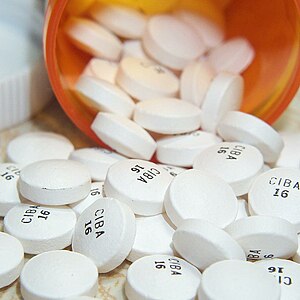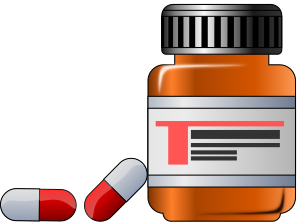Excerpt WEAKEST LYNX
I undressed in the bathroom. When I lifted the hamper lid, my peripheral vision caught a dark face reflected in the mirror. I gasped, my brain processing like a camera with an open shutter. Click. Tribal tattoos. Click. Gas mask. Click. Sink on right. Click. White cloth. Click. Sweet odor. Click. No alarm. Click. No help.
While my mind snapped perceptions, my body acted from
training. I lowered my hips to drop my weight for better balance and leverage.
My left leg swung behind his. I bent my knee in a swift, sharp move as I
reached over my head, grasping his shirt to put him on the floor.
But the initial fumes I had sucked in made the room
watery and undulating, melting my muscles and my instincts into useless puddles.
My arms dropped ineffectually to my sides. One of his hands trapped me against
him as I dangled, unable to hold my weight up with my legs, while his other
hand smashed the cloth tightly over my nose.
| (Photo credit: Wikipedia) |
Inside a forensic department there are typically two chemistry labs housed in different locations because of the potential for cross-contamination. There are:
1 Contraband Substances Labs
* Identifies substances in seized form
* Typically measured in gram and kilograms
2 Toxicology Lab
* Identifies substances that are found in urine, blood, and tissues
* Typically measured in micro-gram and nano-grams
What is a Forensic Toxicologist (1:50)
Some Useful Vocabulary:
A drug - single chemical or compound chemical that has psychological and or physical reactions on the
| (Photo credit: Wikipedia) |
* Prescription
* Over the counter
* Recreational
legal - such as alcohol
illegal - such as heroine
* Natural - such as caffeine
A poison has life threatening
effects.
Toxicology - The study of how humans and animals are
affected by poisons or drugs
Forensic Toxicology - how the affect of drugs and
poisons have legal ramifications
Synergism - Forensic Toxicologist must be mindful
of Synergism - When two or more drugs or
substances work together to increase the effect such as
alcohol and barbiturates. Jimmy Hendricks, Janice
Joplin are two examples.
Pharmacologyy - the science of understanding the way drugs act
and the affects they have on a body
Pharmoketetics study of how drugs move - including how they get
into and out of the body
Absorption - how a drug gets into a body
VIDEO QUICK STUDY Absorption and Dose (7:49)
1. The drug can be inserted intravenously - shot directly into a
vein/ the blood system. They can also be shot into a muscle
where they will enter the blood in a gradual manner.
2. Orally - entering the body through the digestive tract
3. Rectal insertion - crossing the mucus lining into the gastro-
intenstinal tract
4. Inhaled - such as for asthmatics or with a nebulizer or gas like
carbon monoxide poisoning.
5. Deramal - lotions and other products that are applied to the skin,
but will not typically show up in significant quantities in the
blood stream.
6. Ocular
Distribution - almost always the product is distributed to the rest
of the body through the blood/circulatory system. These do not
circulate in an even way.
1. The heart and liver - often have a higher concentration
2. The brain - many drugs cannot get into the brain because blood
networks in the brain are less permeable than other parts of the
body.
3. Some products simply build up in the system. Pesticides, for
example, build up in fatty tissues (adipose) over time.
Example of this is mercury in fish.
Metabolism - (broken down into metabolites) usually happens in
the liver.
1. Drug is deactivated with time.
2. Body eliminates the drug
3. Converts it into a substance that can be used for energy
Elimination -
1. Most is removed through urine (that's why urine testing is so
important)
2. Feces
3. Sweat
4. Lactation
5. Hair follicles.
VIDEO QUICK STUDY of hair toxicology (1:10)
6. Exhalent VIDEO QUICK STUDY - A breathalyzer to analyze
alcohol consumption (:50)
Poisonings can occur by:
Accident
- Child poisoning
- Storing improperly, putting a poison in an incorrect
- Container/mislabeling
- Taking the wrong medication
- Taking one's medication multiple times during the day (do to dementia, etc.)
Adverse drug interactions
- An individual might have specific issues such as organ damage that is exacerbated over time by taking certain medications.
- Environmental causes such as radon or industrial chemicals
- Animals such as spiders or snakes
- Plants
Overdose on recreational drugs VIDEO QUICK STUDY of street drugs and their forensic effects (9:52)
Suicide only fatal about 2% of the time but often results in organ
damage.
Homicide
| An arrangement of psychoactive drugs (Photo credit: Wikipedia) |
- nausea and vomiting
- respiratory distress
- change in skin coloration
- seizures
- blurred vision
- slurred speech
- mental confusion
- swelling
- Loss of consciousness
The severity of the reaction depends on many factors including:
- Size of the victim
- Health of the victim
- Amount of substance
- Duration of exposure
When deciding if this was a suicide or homicide investigators may utilize a forensic psychologist or death investigator to interview family, friends, and coworkers to put together a picture of their health history, their state of mental health, and their history of drug use both legal and illegal.
Tests can be performed on the living or the dead.
Subjects who are living might be tested for some of these reasons:
- Pre-employment drug tests
- Randomized drug testing for public safety
- Athletes
- Crime scene - was a suspect under the influence?
- Victim of a crime - for example was a date rape drug used?
Blog - How to Drug Your Victim - the Four Main Date Rape Drugs
Post-mortem Forensic Drug Tests are done by Forensic Toxicologist and/or Forensic Pathologist - medical doctors specializing in disease and chemistry.
In trying to determine the poison/toxin there are three main steps:
Sample - Postmortem Sampling List will probably look at:
- blood
- urine
- stomach contents
- bile and liver (site of metabolism for many drugs)
- brain tissue/spinal fluid
- vitreous fluid (from the eye) Even in a body that has already started to breakdown, this is often a place where toxicologists can gather information because the eye is more resistant than other tissues to decomposition.
| (Photo credit: Jack Spades) |
- fatty deposits
- hair - this is the longest lasting source of a decomposed body.
Screen -
* indicates a drug might be present
* some drugs mimic naturally
occurring substance
* Gas Chromotography VIDEO QUICK STUDY (1:12)
* Enzyme Multiplied Immunoassay Testing
VIDEO QUICK STUDY (2:06)
Extract -
* concentrates the drug so it's easier to detect
* removes other substances that might contaminate the results
* Mass Spectometry VIDEO QUICK STUDY (7:59)
qualitative and quantitative information is gathered
Please let me know if you have any questions, and I will do my best to help.







